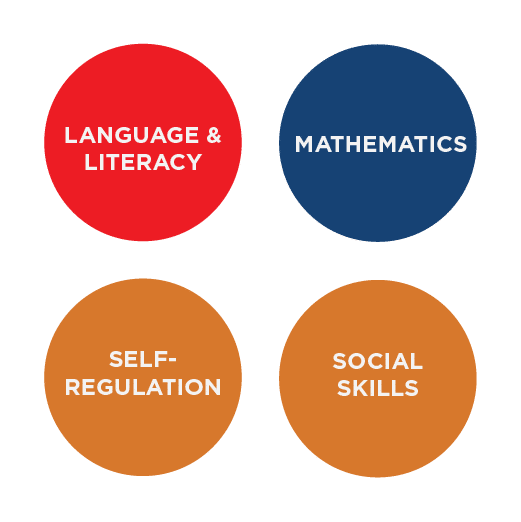Understanding the Readiness Landscape
VKRP aims to provide a clear picture of Virginia’s kindergarten readiness landscape.
Virginia's Kindergarten Readiness Landscape
Opportunity gaps can drive disparities in school readiness skills. These disparities are evident at school entry, may persist if not assessed and addressed, and place students at unequal starting points. Too often, early gaps are perpetuated by not meeting students’ unique needs once they start formal schooling. How do we know what skills and strengths young children have as they enter kindergarten? How can we best support children in areas where they need it most?
VKRP provides a snapshot of the state’s school readiness landscape. By looking closely at how opportunities are distributed, which students need more support, and where resources are needed, VKRP can provide educators, schools, and policy makers with information they need to work towards increasing opportunities that strengthen school readiness skills.

KINDERGARTEN READINESS IN VIRGINIA
Patterns in the Data
Persistent Disparities
The data show persistent readiness differences in all four learning areas – literacy, mathematics, social-skills, and self-regulation.
Children Face Disparities
Children identified as having a disability and children from households with low-incomes are more likely to be unprepared in the four key critical learning domains.
Preschool Makes a Difference
Research consistently shows that children who attend preschool are more likely to demonstrate stronger school readiness skills at the beginning of kindergarten.
What We're Learning
VKRP has uncovered essential information about what helps young children become ready for kindergarten. For example, children from households with low-incomes are about 1.5 times more likely to demonstrate foundational readiness skills at the beginning of kindergarten if they attend public preschool, compared to their peers who did not attend preschool.
In addition, teachers report that the VKRP assessment system is an important resource that helps them better meet the needs of young learners in the areas of literacy, mathematics, self-regulation, and social skills. Hear how teachers have been able to transform and individualize their approach to instruction.
Benefits for Leaders
VKRP helps school, program, and division leaders understand students’ readiness skills and provide better support.
Benefits for Educators
Teachers report using VKRP data to better understand and support children’s individual skills during the school year.
Benefits for Families
VKRP helps families better understand what school readiness is and how to support it.